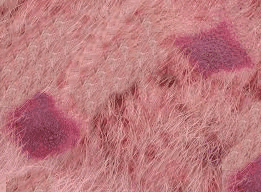
Sign Up
Want to receive a newsletter to learn more about KuneKune pigs and other educational information? Sign up to have them delivered right to your inbox.
We look forwarded to sending you some great info.

Learn how this dangerous pig disease can impact your farm.
The Impact of Erysipelas in pig farming
Pig farming is a lucrative industry that requires a lot of attention to detail and constant monitoring to ensure the health and well-being of the animals. One of the most common and dangerous diseases that can affect pigs is erysipelas. This bacterial infection can have a significant impact on the health, productivity, and profitability of a pig farm.
As a pig farmer, it is essential to have a comprehensive understanding of erysipelas and its effects, from symptoms and diagnosis to prevention and treatment. In this guide, we will explore the impact of erysipelas on pig farming, providing you with all the necessary information to keep your pigs healthy and thriving. Whether you are a seasoned pig farmer or just starting, this guide will give you valuable insights into one of the most critical aspects of pig farming. So, let's dive in and learn
all about the impact of erysipelas on pig farming.
Understanding the Impact of Erysipelas on Pig Farming
Erysipelas is a bacterial infection caused by Erysipelothrix rhusiopathiae, which primarily affects pigs but can also infect other animals and humans. The disease is characterized by skin lesions, fever, arthritis, and sudden death in severe cases. Erysipelas can have a significant impact on pig farming, primarily due to the high mortality rate and reduced productivity caused by the disease.
The economic impact of erysipelas on pig farming is significant, as it can result in reduced weight gain, increased feed consumption, and decreased reproductive performance. The disease can also cause chronic arthritis, which can lead to lameness and reduced mobility, making the pigs unfit for slaughter.
In addition to the direct costs of treating the disease, which can be very costly in vet expenses, erysipelas can also result in indirect costs such as reduced market value and increased labor costs associated with managing the disease. Preventing and managing erysipelas outbreaks is, therefore, critical to the success and profitability of a pig farm. The rest of this guide will explore the various aspects of erysipelas, including its symptoms, diagnosis, prevention, treatment, and vaccination.
Erysipelas Symptoms and Diagnosis
Erysipelas can affect pigs of all ages and breeds, but young pigs are more susceptible to the disease. The symptoms of erysipelas can vary depending on the severity of the infection.
In acute cases, the pigs may show sudden onset of fever, depression, and anorexia. They may also develop skin lesions that are raised, circular, and red, which can be painful to the touch.
They can appear diamond-like, and it is often called Diamond Skin Disease.

In chronic cases, the pigs may develop arthritis, which can cause lameness and reduced mobility. The pigs may also show signs of respiratory distress, such as coughing and labored breathing. Sudden death can occur in severe cases of erysipelas, particularly in young pigs.
Diagnosing erysipelas can be challenging, as the symptoms can be like other diseases. A veterinarian may perform a physical examination of the pigs and take samples for laboratory analysis to confirm the diagnosis. Blood tests and bacterial cultures can help identify the presence of Erysipelothrix rhusiopathiae in the pigs.
Erysipelas Prevention and Control Measures
Preventing and managing erysipelas outbreaks in pig farms is critical to maintaining the health and well-being of the animals and ensuring profitability. The following are some of the preventive measures that pig farmers can take to control the spread of erysipelas.
Biosecurity measures
Implementing strict biosecurity measures can help prevent the introduction of erysipelas into pig farms. This includes limiting access to the farm, disinfecting equipment, and vehicles, and practicing good hygiene. Making sure to quarantine any new pigs on your farm is a best practice to keep any existing pigs safe.
Vaccination
Vaccination is an effective way to prevent erysipelas outbreaks. There are many available at Valley Vet. One of the most popular to use for KuneKune pigs and other swine breeds is Rhini Shield TX4. Prevention is much easier than dealing with the cost involved once they already have it. It is cheaper to prevent it than to pay the vets $400 or more.
Antibiotics
Antibiotics can be used to treat erysipelas outbreaks and prevent the spread of the disease. Your vet may also provide IV fluids and other medications to assist a pig with this disease to overcome it. It will not be inexpensive.
Nutrition
Providing a balanced diet and adequate nutrition to the pigs can help boost their immune system and prevent erysipelas outbreaks in vaccinated herds.
Erysipelas Treatment Options
Treating erysipelas in pigs requires a multi-pronged approach that includes antibiotics, anti-inflammatory drugs, and supportive care. The following are some of the treatment options available for erysipelas.
Antibiotics for erysipelas in pigs treatment
Penicillin and tetracycline are the most used antibiotics for treating erysipelas in pigs. These antibiotics can be administered orally or by injection. The
duration of treatment may vary depending on the severity of the infection.
Anti-inflammatory drugs
non-steroidal anti-inflammatory drugs (NSAIDs) can help reduce fever and inflammation in pigs with erysipelas. This can help alleviate pain and discomfort associated with the disease.
Supportive care
Providing supportive care, such as adequate hydration, nutrition, and rest, can help the pigs recover from erysipelas. It is also essential to isolate infected pigs from healthy ones to prevent the spread of the disease.
Erysipelas Vaccination in Pig Farming
Vaccination is an effective way to prevent erysipelas outbreaks in pig farms. The vaccine can provide long-lasting immunity to the pigs, reducing the risk of infection and disease. They are usually administered to young pigs through injection or oral administration. Rhini Shield TX4 is commonly given to piglets at 5 weeks and 7 weeks. Adults are given one dose twice a year.
It is essential to work with a veterinarian to develop a vaccination program that fits the specific needs of your pig farm. The vaccination schedule may vary depending on the age, breed, and health status of the pigs. Please consult your veterinarian to discuss the vaccines that you use.
Best Practices for Managing Erysipelas Outbreaks in Pig Farms
Managing erysipelas outbreaks in pig farms requires a multi-pronged approach that includes prevention, diagnosis, and treatment. The following are some best practices that pig farmers can follow to manage erysipelas outbreaks:
- Implement biosecurity measures: Limiting access to the farm, practicing good hygiene, and disinfecting equipment and vehicles can help prevent the spread of erysipelas.
- Monitor pigs for symptoms: Regular monitoring of the pigs for signs of erysipelas can help detect outbreaks early and prevent the spread of the disease. Feeding time is a wonderful time for your “inspections” to ensure that all pigs are doing well. Often the first sign that something is wrong is when a pig does not immediately come to eat. KuneKunes are known to be food-motivated. Therefore, if your pig does not come for breakfast or dinner, you can trust something is going on with that pig.
- Diagnose the disease: Working with a veterinarian to diagnose erysipelas and develop a treatment plan is critical to managing outbreaks.
- Treat infected pigs: Administering antibiotics, anti-inflammatory drugs, and supportive care to infected pigs can help them recover from erysipelas.
- Isolate infected pigs: Isolating infected pigs from healthy ones can help prevent the spread of the disease.
Erysipelas and Pig Farming Economics
Erysipelas can have a significant economic impact on pig farming, primarily due to reduced productivity and increased costs associated with managing the disease. Additionally, in the death of a pig that could have been a productive part of your breeding or pork production program. The following are some of the economic impacts of erysipelas on pig farming:
- Reduced weight gain: Erysipelas can cause reduced weight gain in pigs, resulting in decreased profitability for pig farmers.
- Increased feed consumption: Infected pigs may require more feed to maintain their health, resulting in increased feed costs for pig farmers.
- Decreased reproductive performance: Erysipelas can cause decreased reproductive performance in pigs, resulting in reduced litter size and increased breeding costs.
- Market value reduction: Infected pigs may be unsuitable for slaughter, resulting in reduced market value for pig farmers.
- Increased labor costs: Managing erysipelas outbreaks can be labor-intensive, resulting in increased labor costs for pig farmers.
Erysipelas and Public Health Concerns
Erysipelas is a zoonotic disease, which means it can be transmitted from animals to humans. While the risk of transmission is low, it is essential to take precautions when handling infected pigs or their carcasses. The following are some public health concerns associated with erysipelas:
- Skin infections: Humans can contract erysipelas through contact with infected pigs or their carcasses. The disease can cause skin infections that are painful and difficult to treat.
- Systemic infections: In rare cases, erysipelas can cause systemic infections in humans, particularly those with weakened immune systems.
It is essential to follow good hygiene practices when handling pigs or their carcasses to prevent the spread of erysipelas to humans.
In Conclusion
Erysipelas is a bacterial infection that can have a significant impact on pig farming, primarily due to reduced productivity and increased costs associated with managing the disease. Preventing and managing erysipelas outbreaks in pig farms is critical to maintaining the health and well-being of the animals and ensuring profitability.
Vaccination, biosecurity measures, and early detection and treatment are essential components of managing erysipelas outbreaks. It is also important to follow good hygiene practices when handling infected pigs or their carcasses to prevent the spread of the disease to humans. By following the best practices outlined in this guide, pig farmers can prevent and manage erysipelas outbreaks and ensure the health and well-being of their animals.
Registry Office
17500 Hamilton Arms Court Dewitt, VA 23840